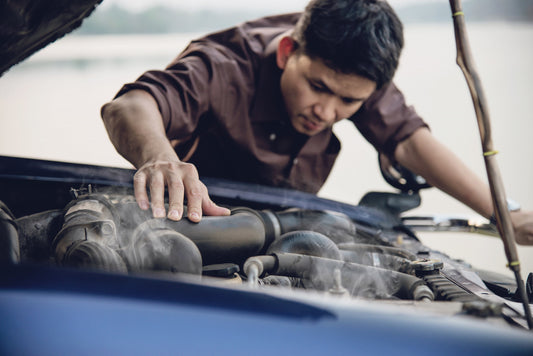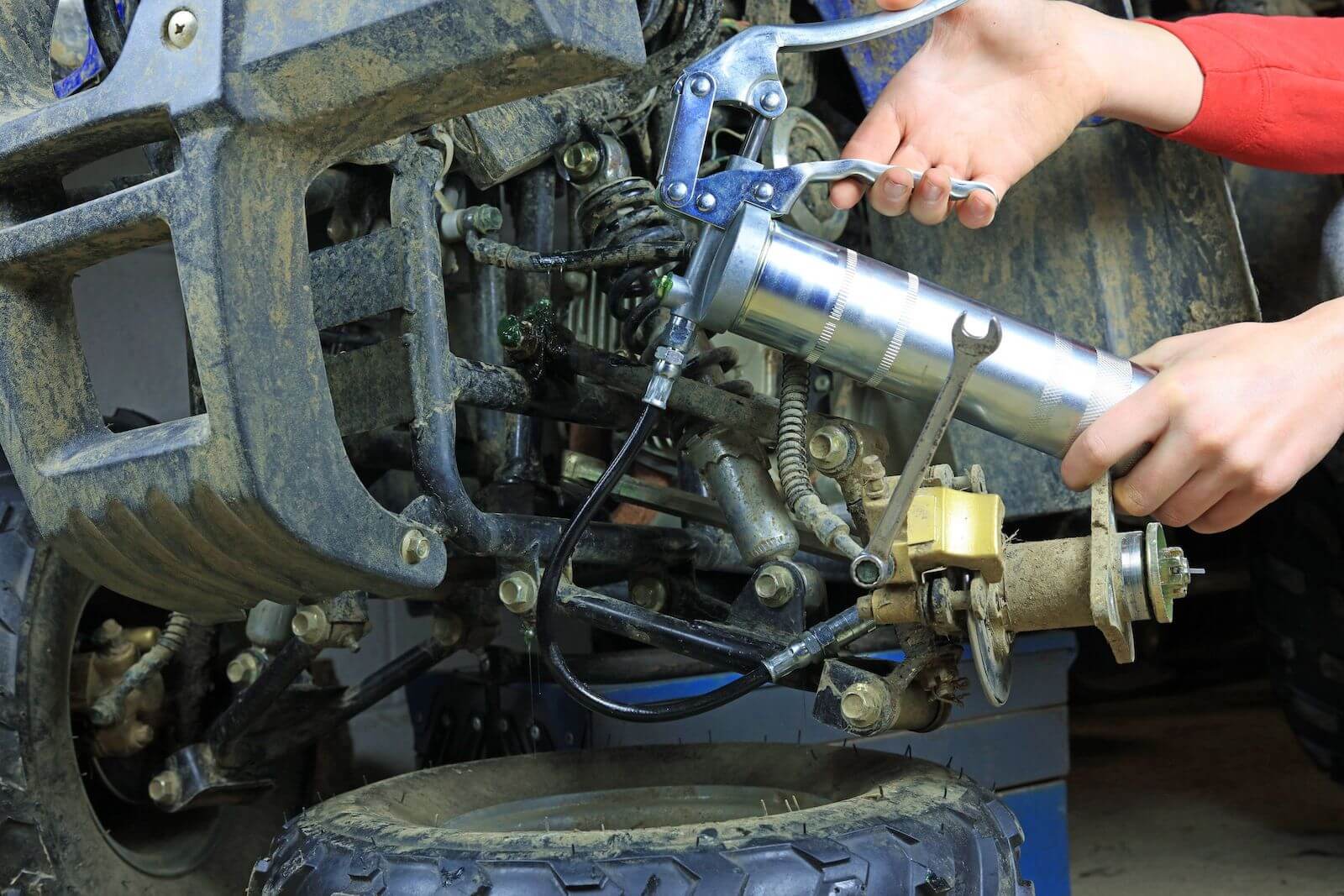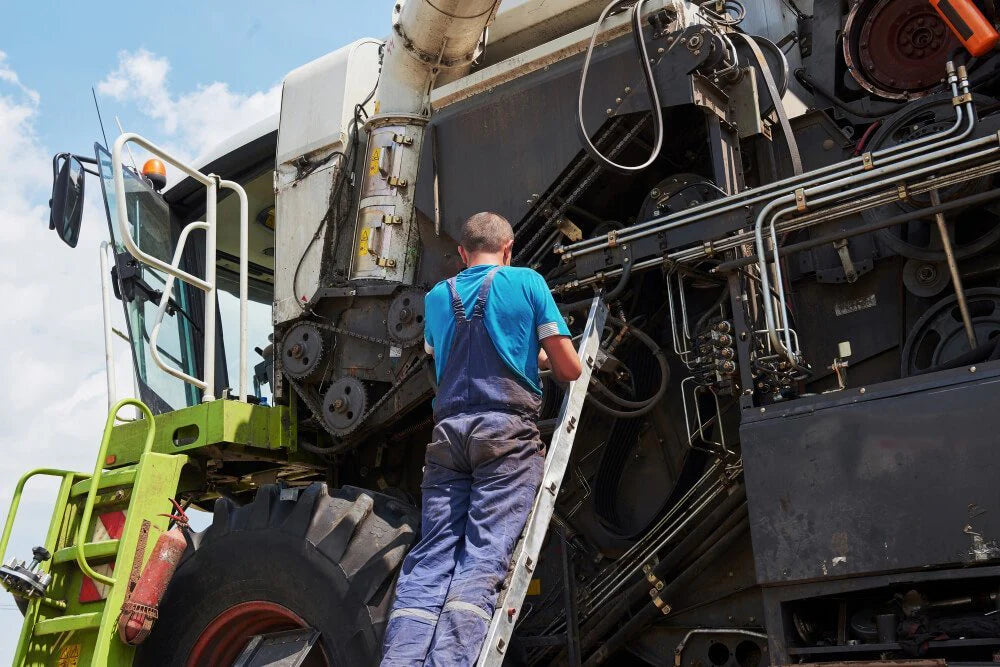It’s August and that means for most of the country the dog days of summer are behind us and the forecast is looking cooler.
Some people love the fall season for its crisp mornings and beautiful colors while others are saddened by the ending of warm summer nights and can only cope by going into a barbecuing frenzy every Sunday before the football game starts.
Tip: For all the men reading this: It may be worth a shot to tell your wife that the weekly barbecue and resulting weight gain is a survival trait all men inherited to bulk up before winter to stay strong when food got scarce.
For all the women reading this: Who cares what his excuse is if it gets him out of the house? Anyway, whether you love or hate the end of summer there are certain things you NEED to do before fall comes if you want to avoid flooded basements/garages, snowblower/lawnmower not starting, mouse or pest infestations, tractor not starting, frozen faucets, and car trouble.
If you have experienced any of these you know how they can ruin your day, so let’s take care of them using this fall home maintenance guide now and hopefully have a relaxing, uninterrupted football season.
Fall Home Maintenance: Prevent your Garage or Basement From Flooding
It is most common for homeowners to experience water issues in their homes in fall and spring, so it is important to safeguard your home before fall arrives. Plus, safeguarding your house in fall will typically prevent issues in spring!
Let’s start with the most basic tips.
1. Work on your yard
Walk around your yard and look for anything that might prevent water from flowing away from your house. Landscaping and lawns are designed to get water away from your house so if you have any unfinished projects that might prevent water from flowing away — it’s time to finish that project.

Piles of mulch, dirt, and even where things like a new pool or trampoline sit can all affect how snow will drift and how water will flow away from your house.
2. Plan out where you are going to push or shovel your snow
Look for areas away from your house where snow is going to be able to melt and drain away quickly. But you don’t want to pile snow up in a place that will restrict water flow come spring.

The best place is often next to drain areas like culverts, swales, or ditches, but don’t pile snow directly in these areas because you don’t want the snow to create a dam or obstruction.
3. Clean your gutters
Cleaning or hiring someone to clean the gutters on your home will prevent ice damns from building on the roof, water from leaking into your house and make sure water is carried away from your home.
So, for once, it’s a good idea to have your mind in, rather—have gutters on your mind.
Prepare your Snowblower
How to guarantee your snowblower will start and that your lawnmower will start in spring? The first snow shouldn’t result in a 1-hour cardio exercise to get your snowblower started, instead, make sure it starts now!
Fill your snowblower with non-ethanol gasoline (if possible) and add a fuel stabilizer to make sure it stays ready to ignite. Old gas or gas that has oxidized is the #1 reason a snowblower won’t start.
We recommend using AirTec Octane FS1 for gasoline engines. AirTec Octane FS1 stabilizes gasoline and even ethanol so it is ready to ignite but even more importantly it also protects against corrosion, lubricates the fuel system, increases octane levels, and dispels moisture. It is possibly the only gasoline additive that takes care of the fuel and entire fuel system, ensuring that the engine will start when you need it most!
The same is going to be true for your lawnmower, if you want it to start in spring, add AirTec Octane FS1 in late summer to stabilize and protect your fuel and engine.
Stop Mice & Other Pests
This is another tip that has zero to low cost and only takes a few minutes, but the savings are huge. Walk around your home, garage, and outbuilding and look for any openings a mouse or other pests might use to get into your home. Look for cracks in the foundation, loose siding, or any small gap around vents or piping going into or out of your home.

If you find an opening, use expanding foam to seal the hole, make sure to read on the can, and make sure it is rated for outdoor use. Also, if possible, pick up anything lying around your yard that may not be used in fall or winter.
Flowerpots, toys, and wood piles all make great homes for rodents so pick them up or tidy them up to prevent a mouse from moving in. If the mouse can’t find a place to make a home in your yard, it will move on, and the farther away the better.
Prepare your Tractor
Make sure your tractor will start and hook up the snowblower or snow plow before you need it. Many compact tractors are used by homeowners to clear snow during winter, however, diesel fuel (unlike gasoline) can freeze so you will need to add an anti-gel.

The best time to add an anti-gel is in the Fall because it allows the anti-gel to work through the fuel system before the cold weather arrives. If you add an anti-gel first when it gets cold, you run the risk of the diesel fuel in the fuel lines past the fuel tank freezing.
You want to add the anti-gel early and make sure it is worked through the entire fuel system. We recommend AirTec Frostline -40, it lowers the freezing or gelling point of diesel fuel by as much as 40 degrees!
This prevents the fuel from gelling even in the coldest environments. Another bonus is that AirTec Frostline -40 increases the ignition readiness of the fuel, so it helps the fuel combustion in cold weather!
Enjoy 10% off when you purchase AirTec Frostline- 40 & AirTec OctaneFS1 together
Getting your Car Ready for Winter
When fall hits, you need to get your car ready for the snow and cold. Start by adding in winter-rated windshield washer fluid. Summer windshield washing fluid will freeze and can ice up your windshield so you need to start using a windshield washing fluid rated for winter that can take the cold.
The last thing you want is to hit your windshield washer button and have the fluid freeze on the windshield!
Snow Tires on your Car
Next, get the snow tires on your car. Highway tires do a great job improving fuel mileage during the summer months but are dangerous to have on your car in winter.

Snow will easily coat a highway tire because the tread pattern is not designed to expel snow so the snow will get stuck in the tire, and you will lose traction. You need a tire that is rated for snow or all-weather use. These tires are typically rated ST for snow tires or AT for all terrain. Check your local dealer for the best winter tire for your car.
Lastly, put an emergency bag in your car with food or snacks, hand warmers, hats, gloves, and a blanket just in case your car stalls out on the road, there is a traffic accident, or you get stuck. There are a lot of good survival bags out there for vehicles and when you buy one or put one together yourself make sure you plan for everyone one that typically rides in your vehicle. Winter is extremely dangerous so please plan ahead and be prepared.
Fall is a season of tradition and preparation and being prepared will save you a lot of headaches and could even save your life so read this list carefully and act. Now, if you live in an area that doesn’t experience winter, use fall to prepare yourself for all the tourists and snowbirds that will soon be invading your community. Lastly, don’t forget to enjoy the last few weeks of summer!






